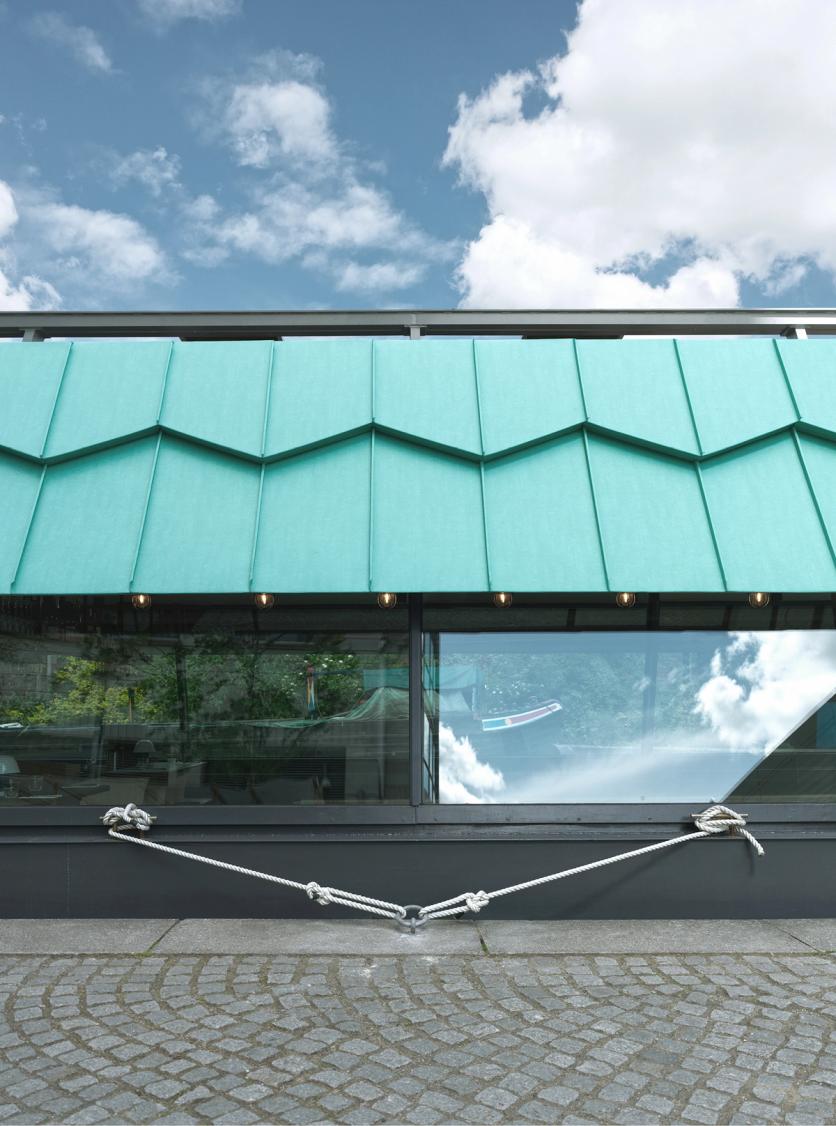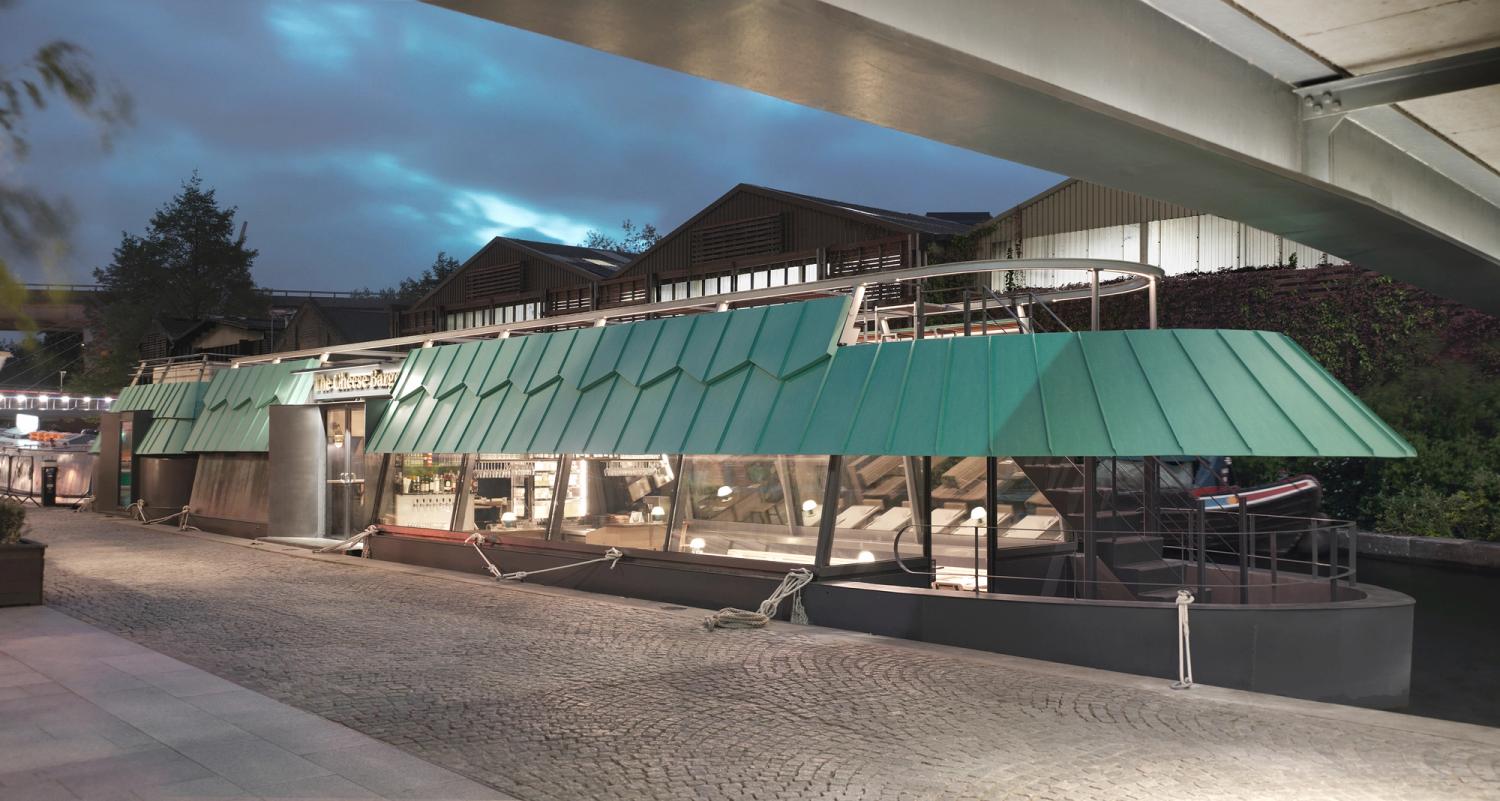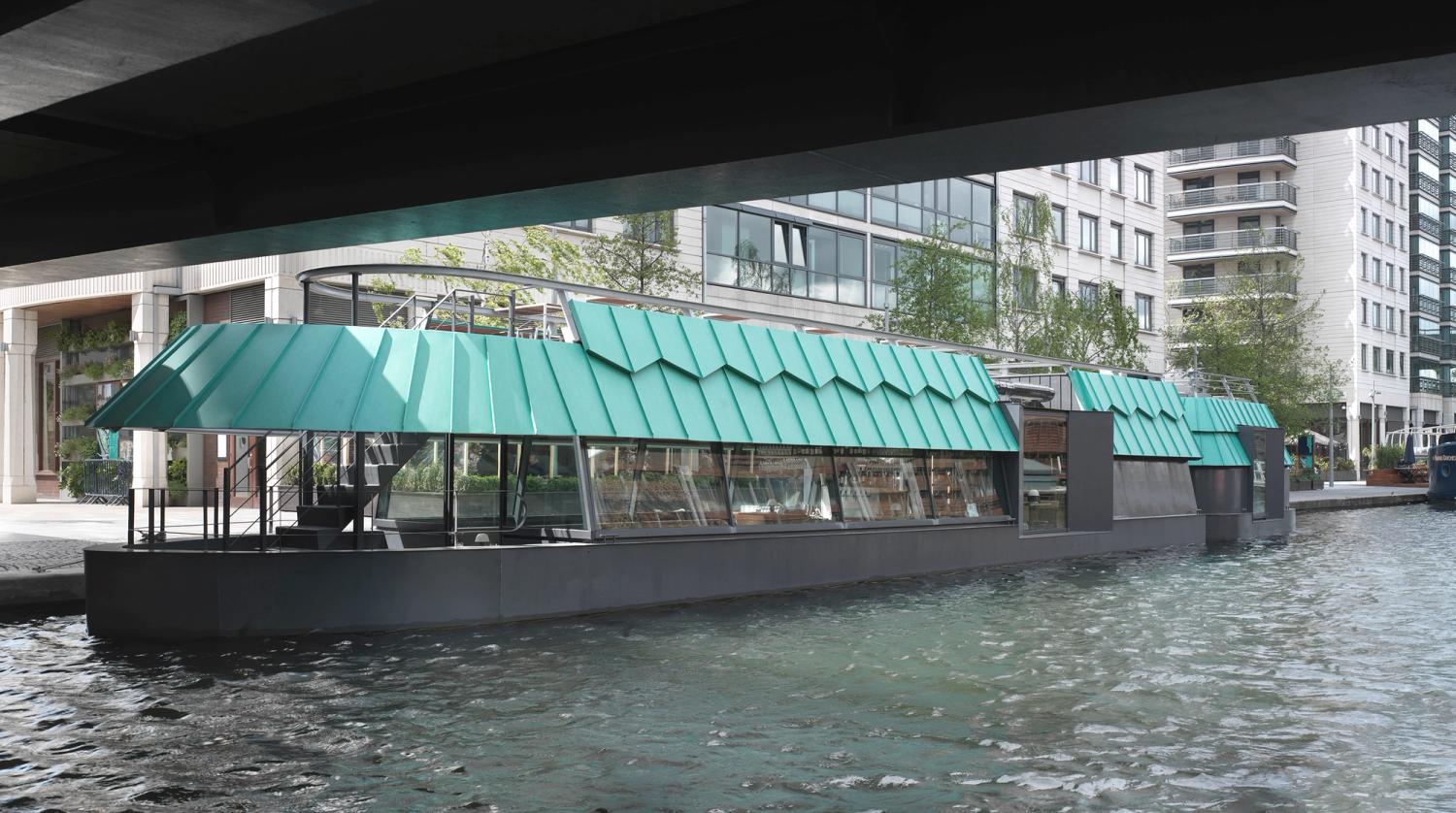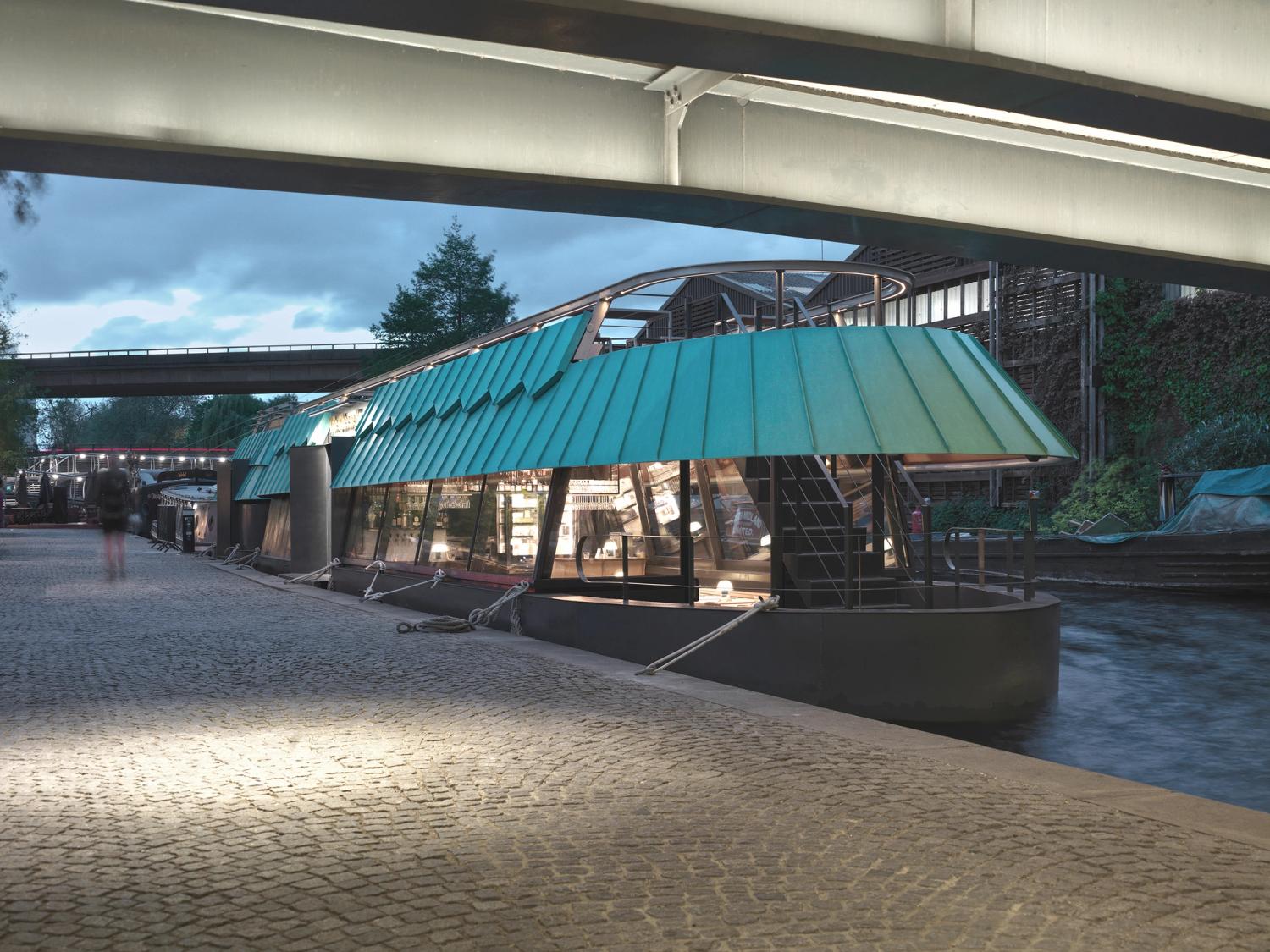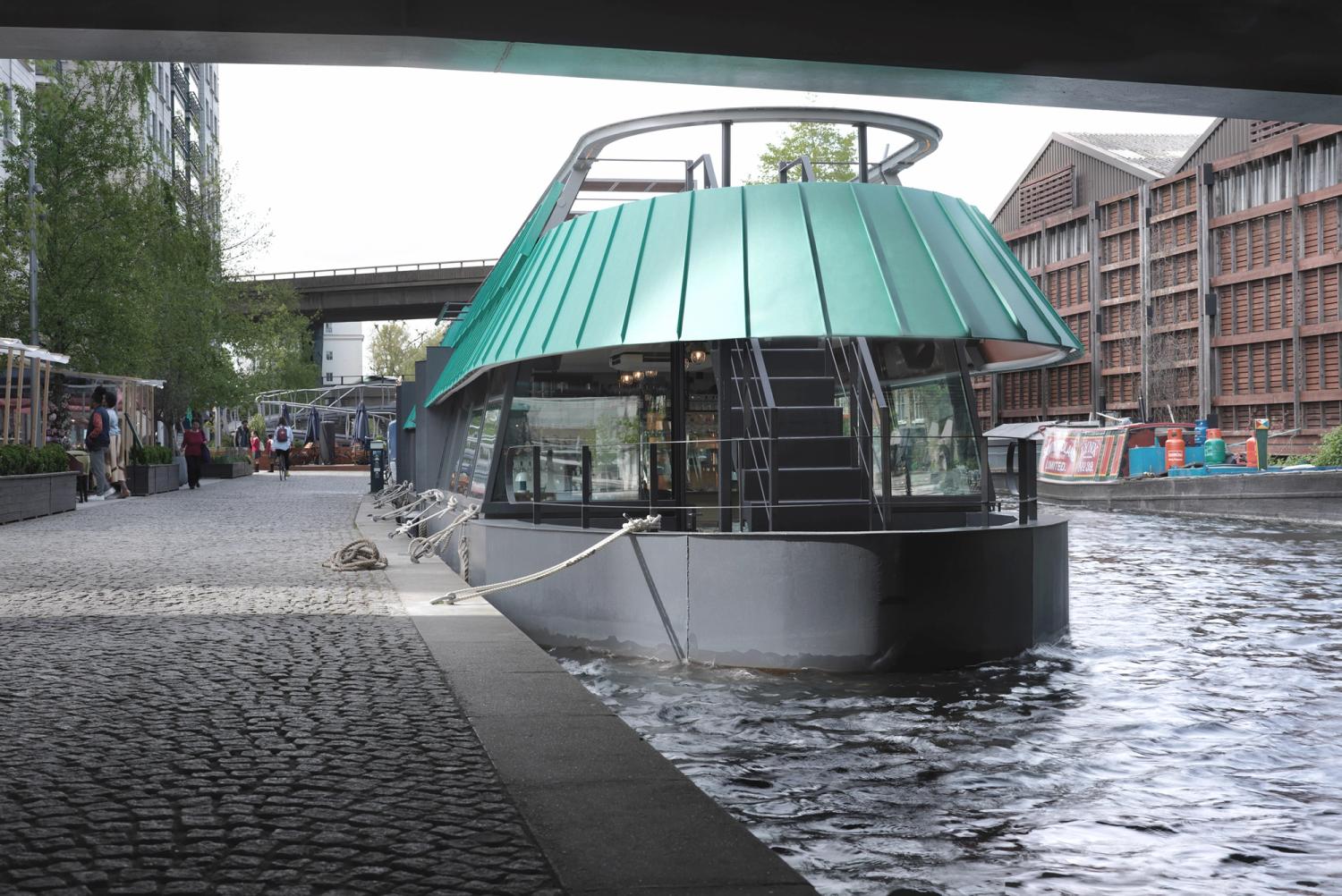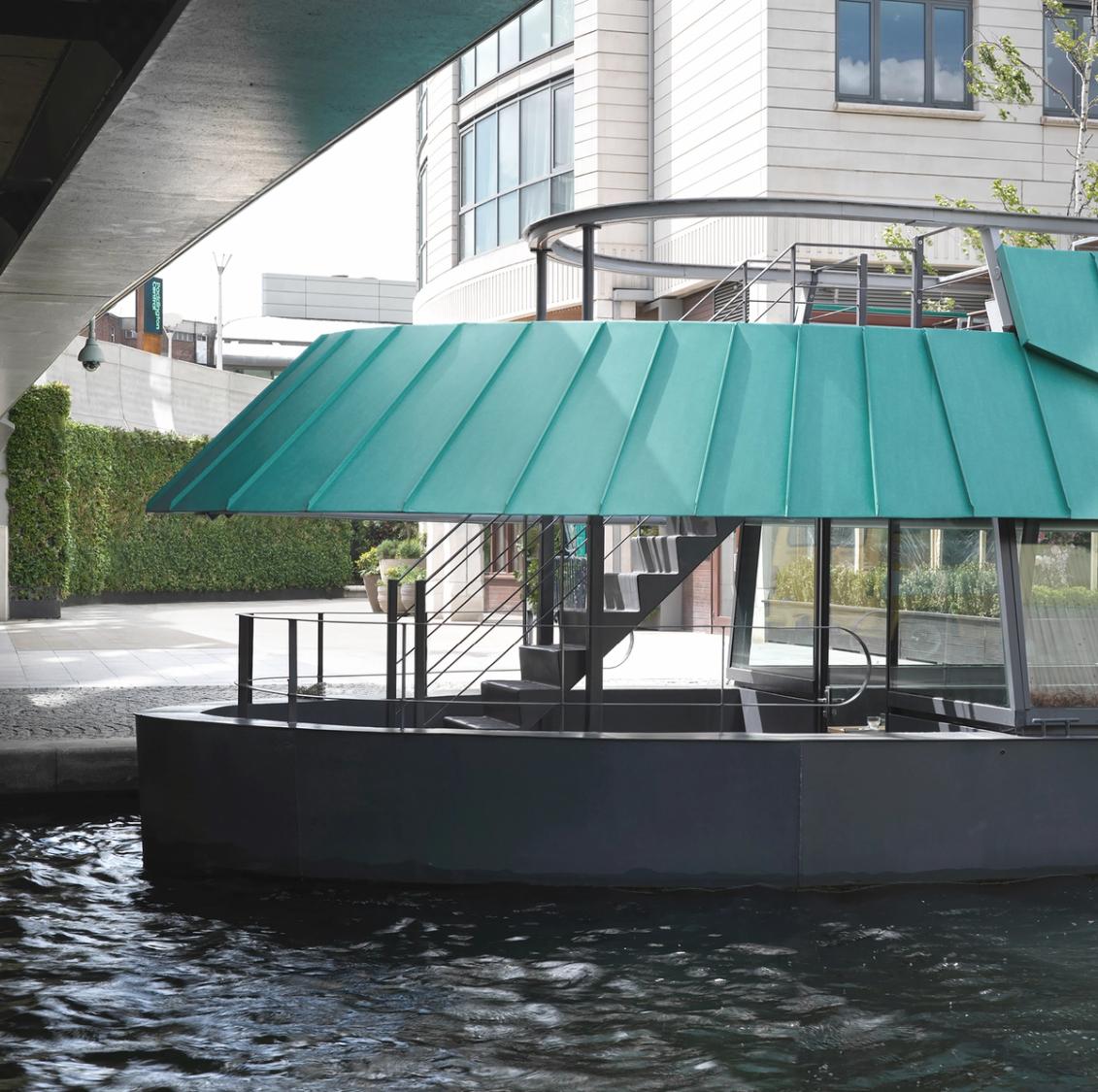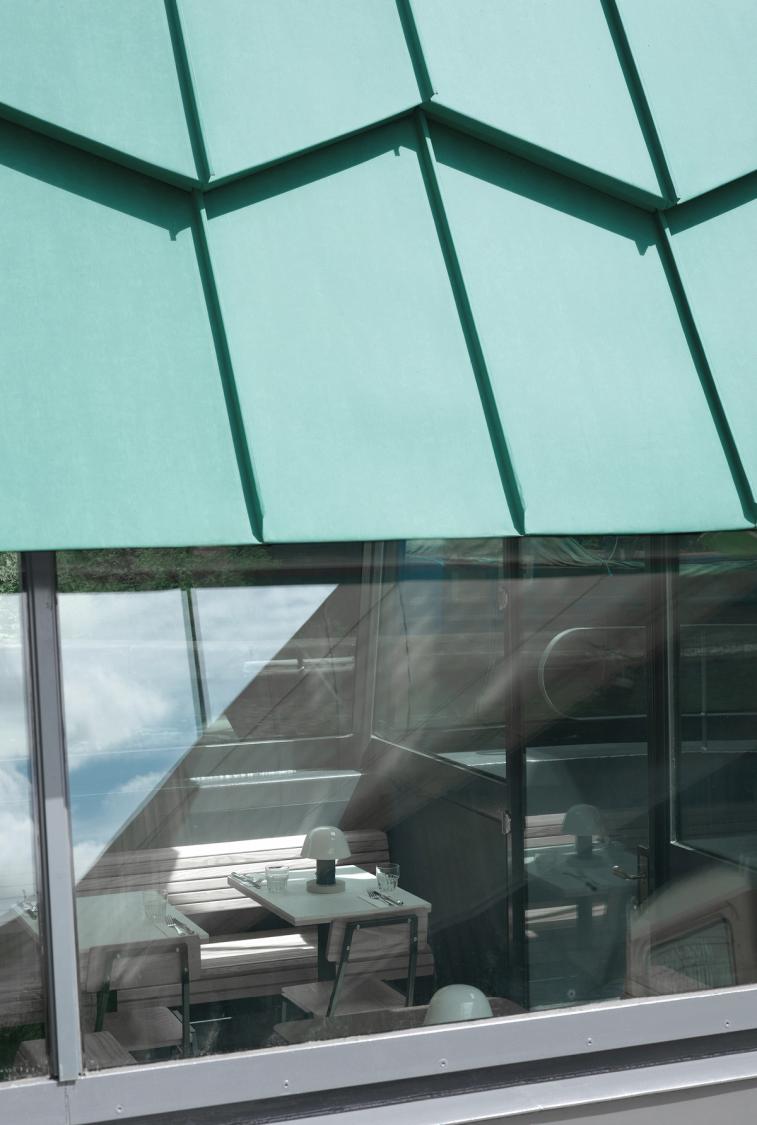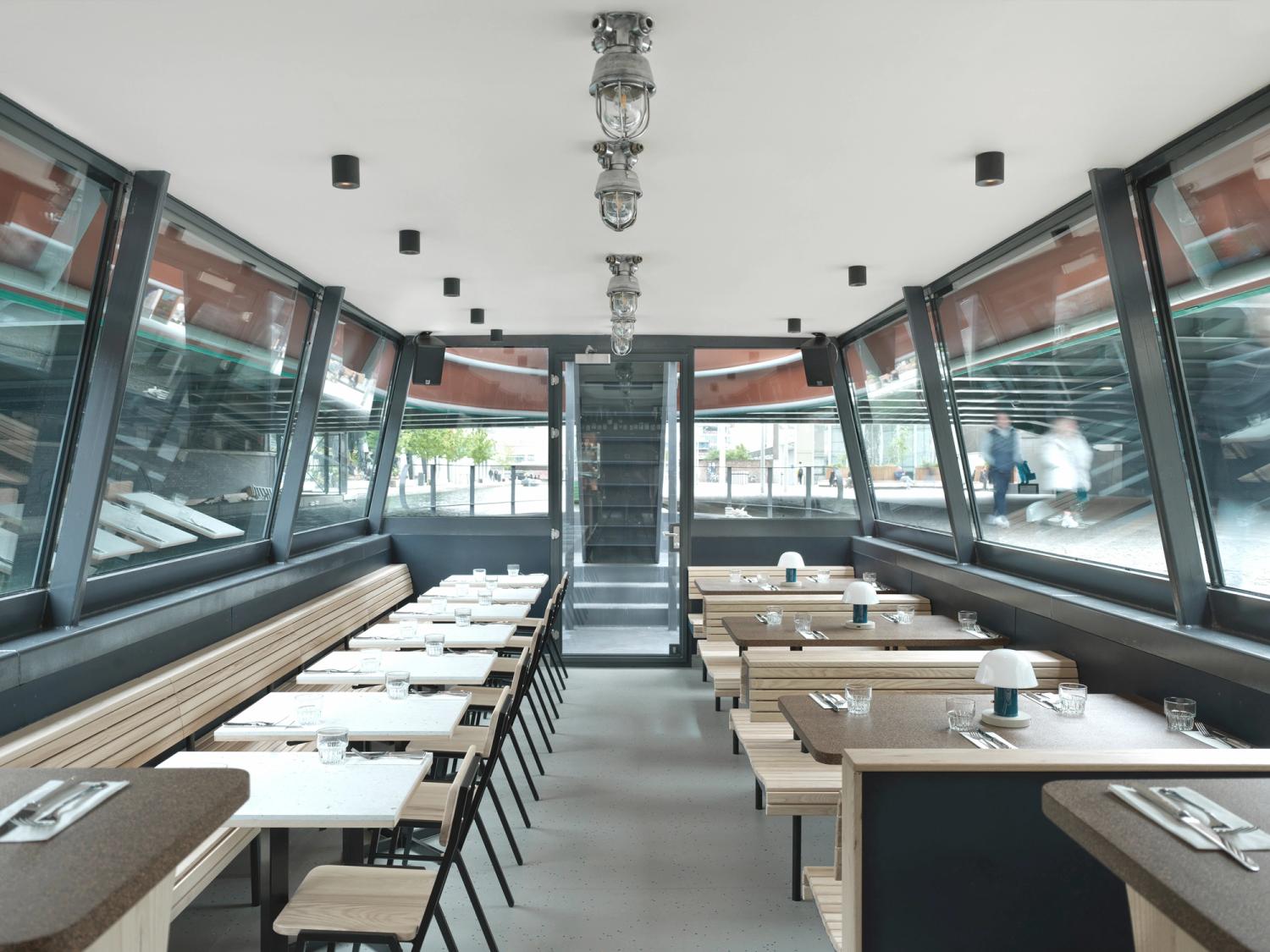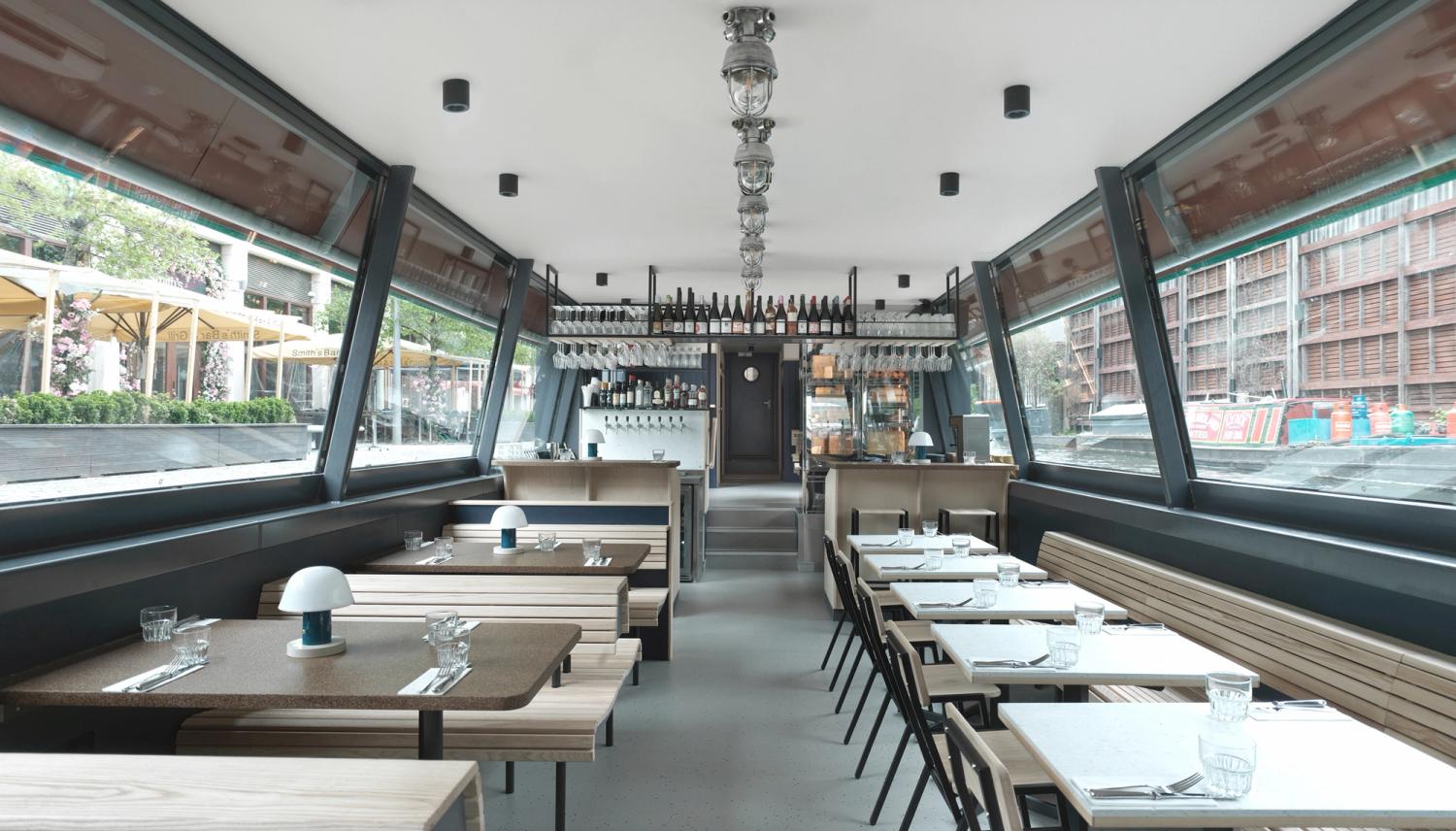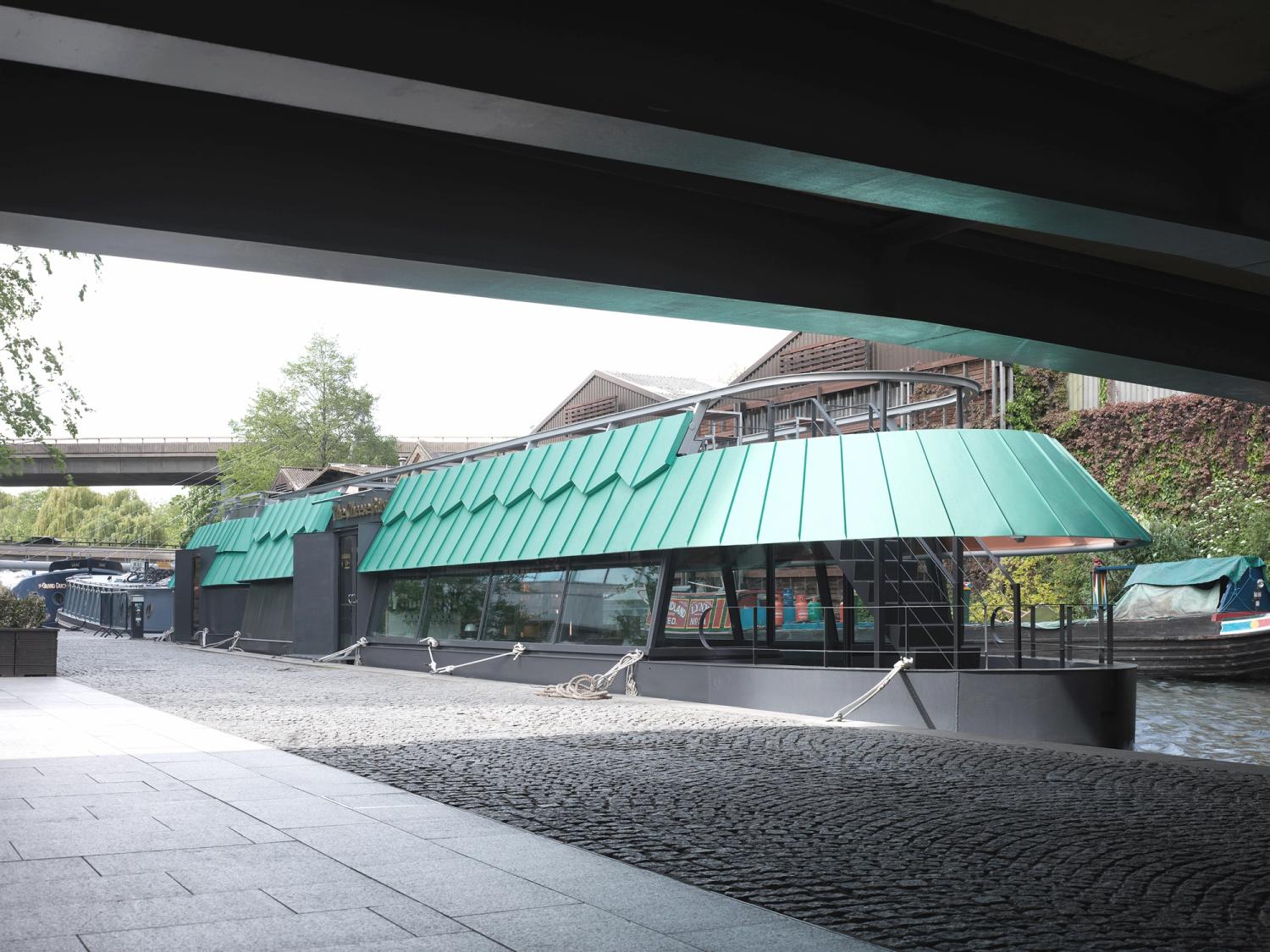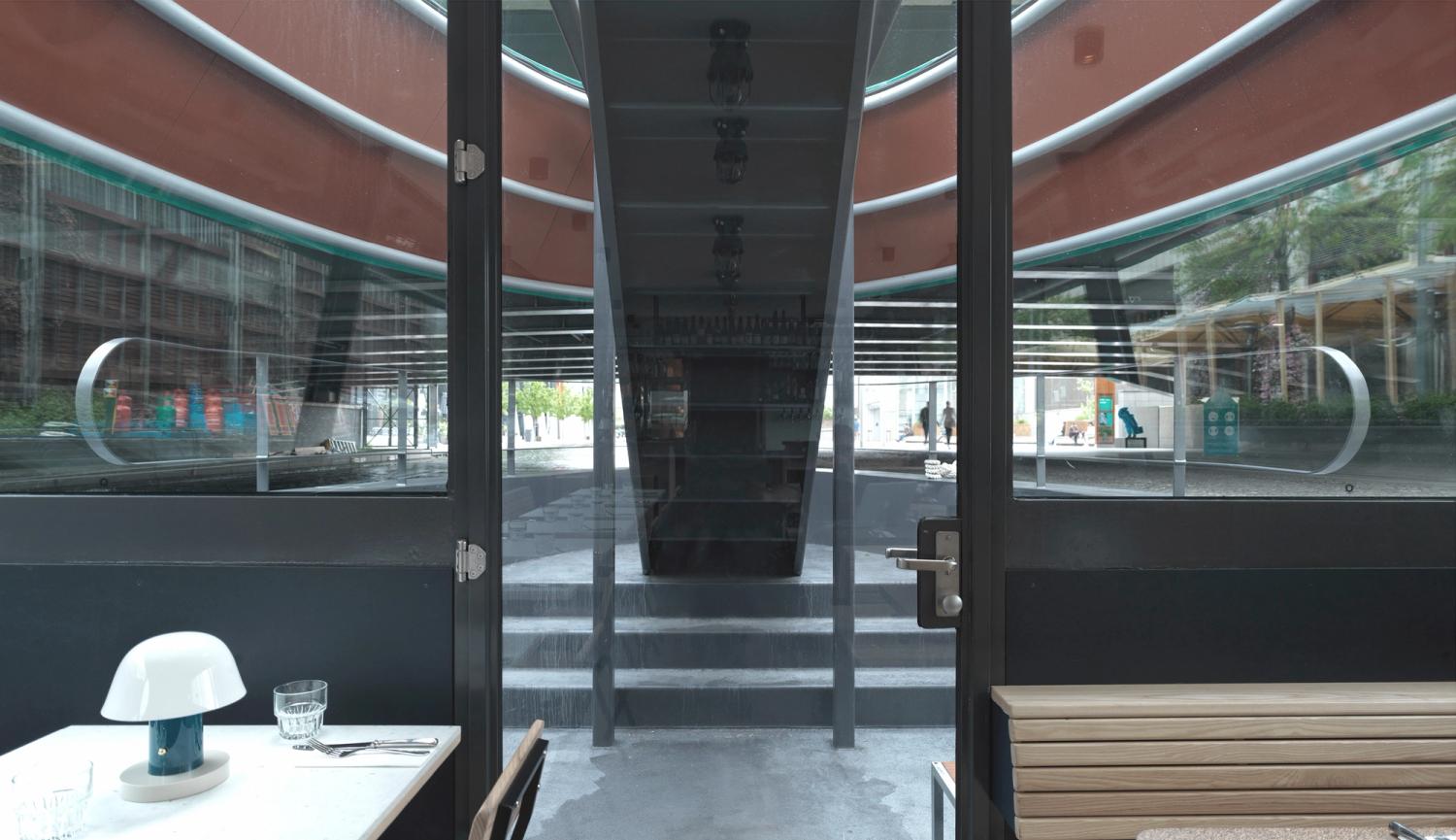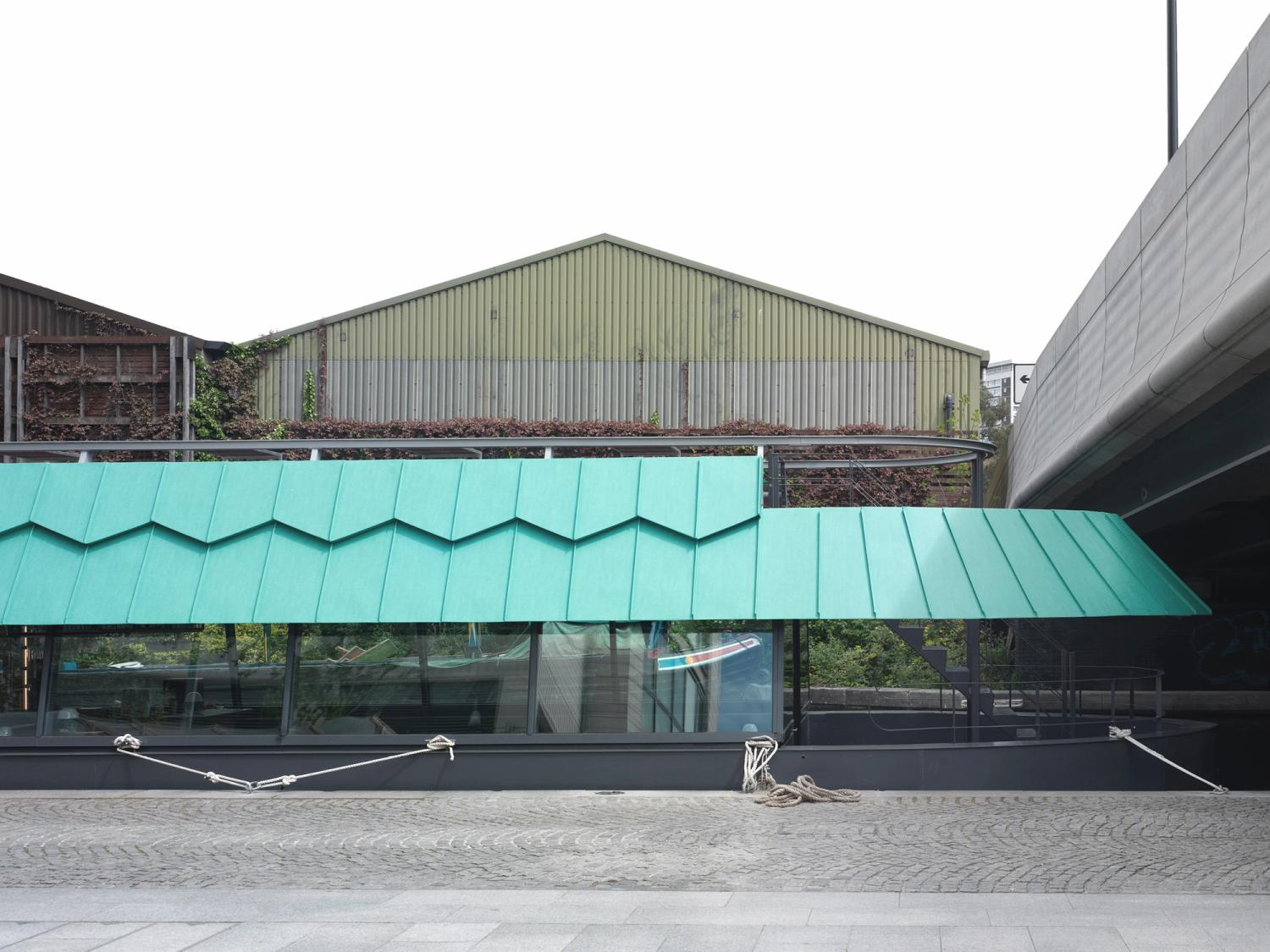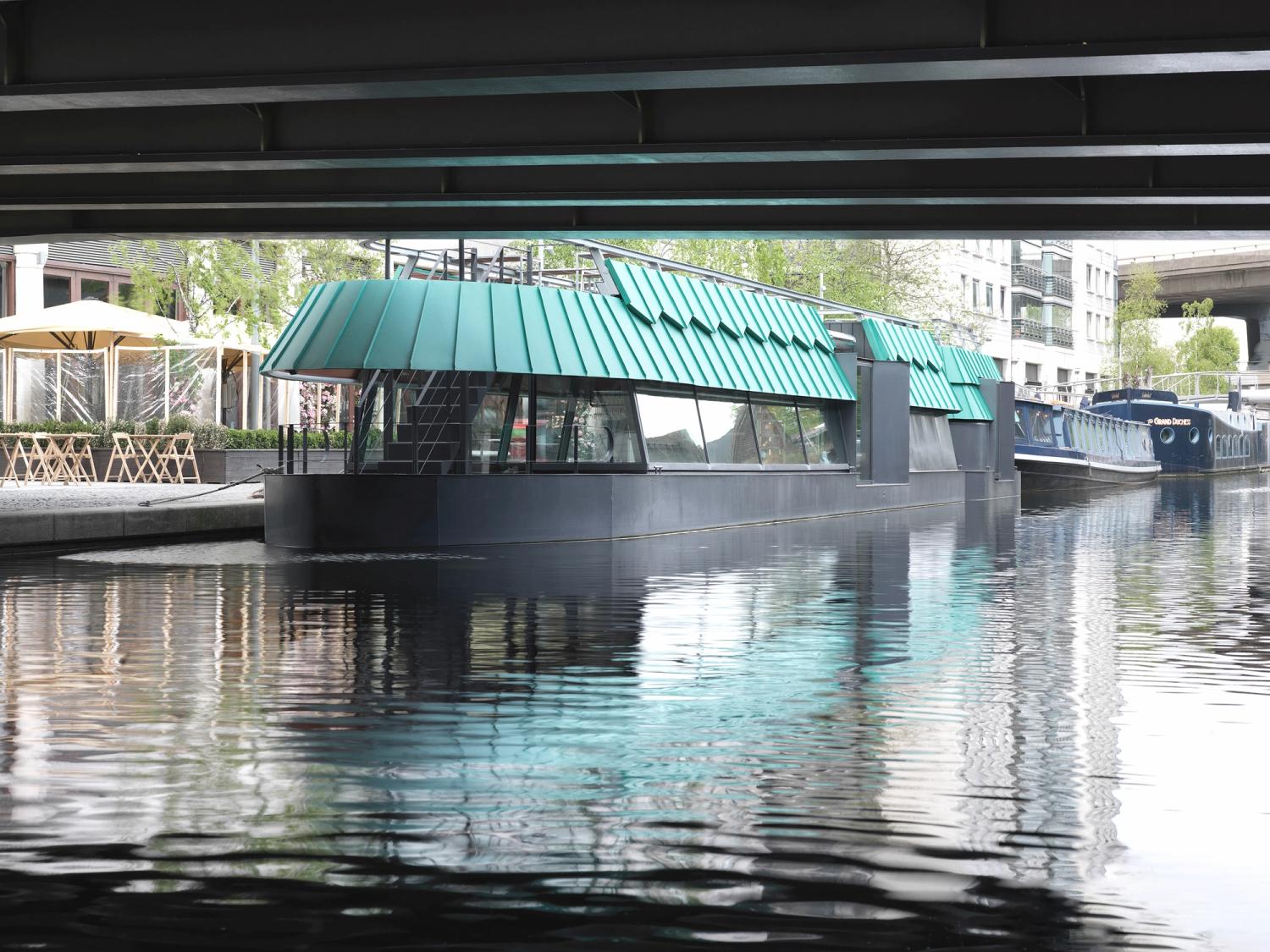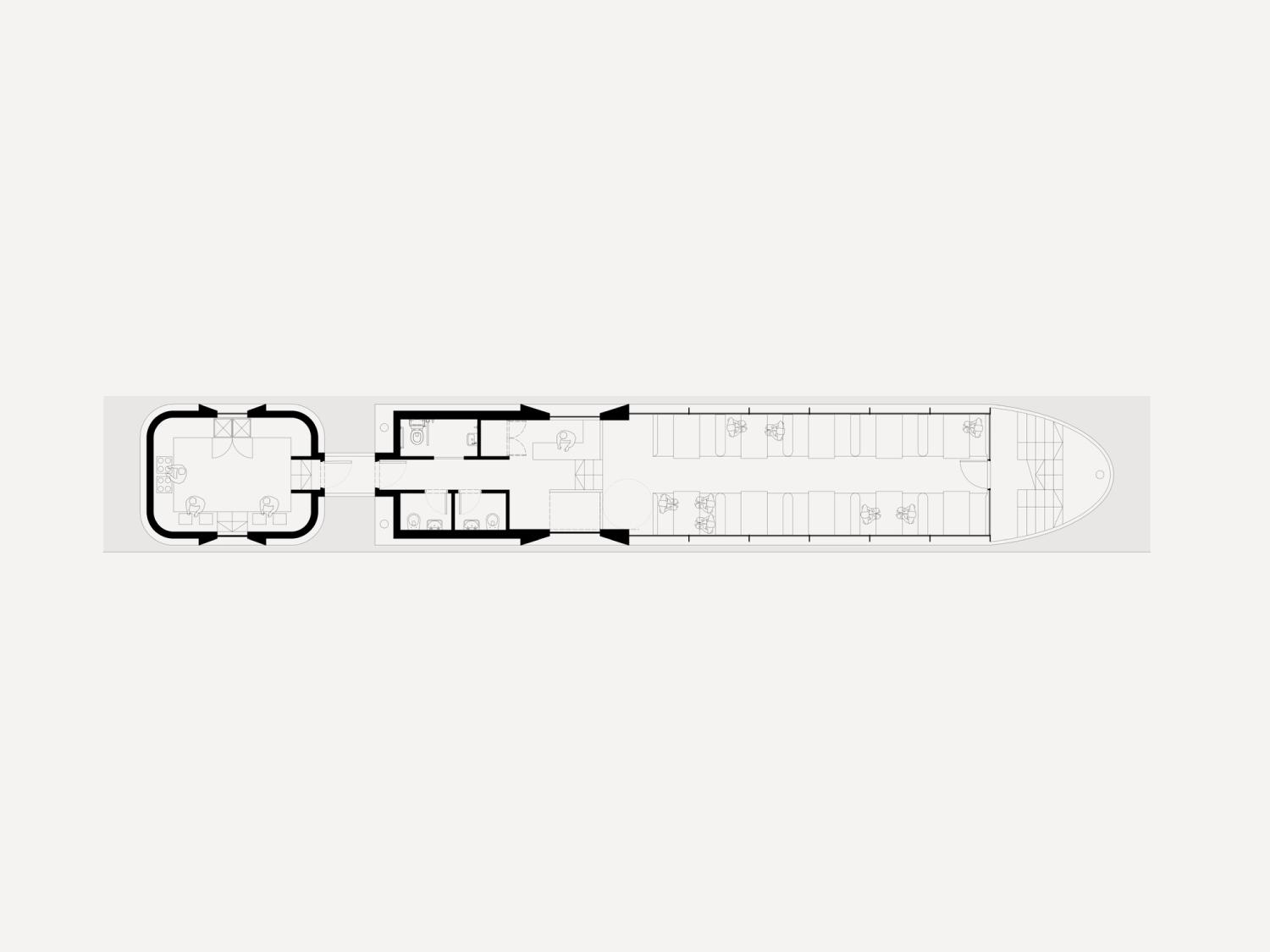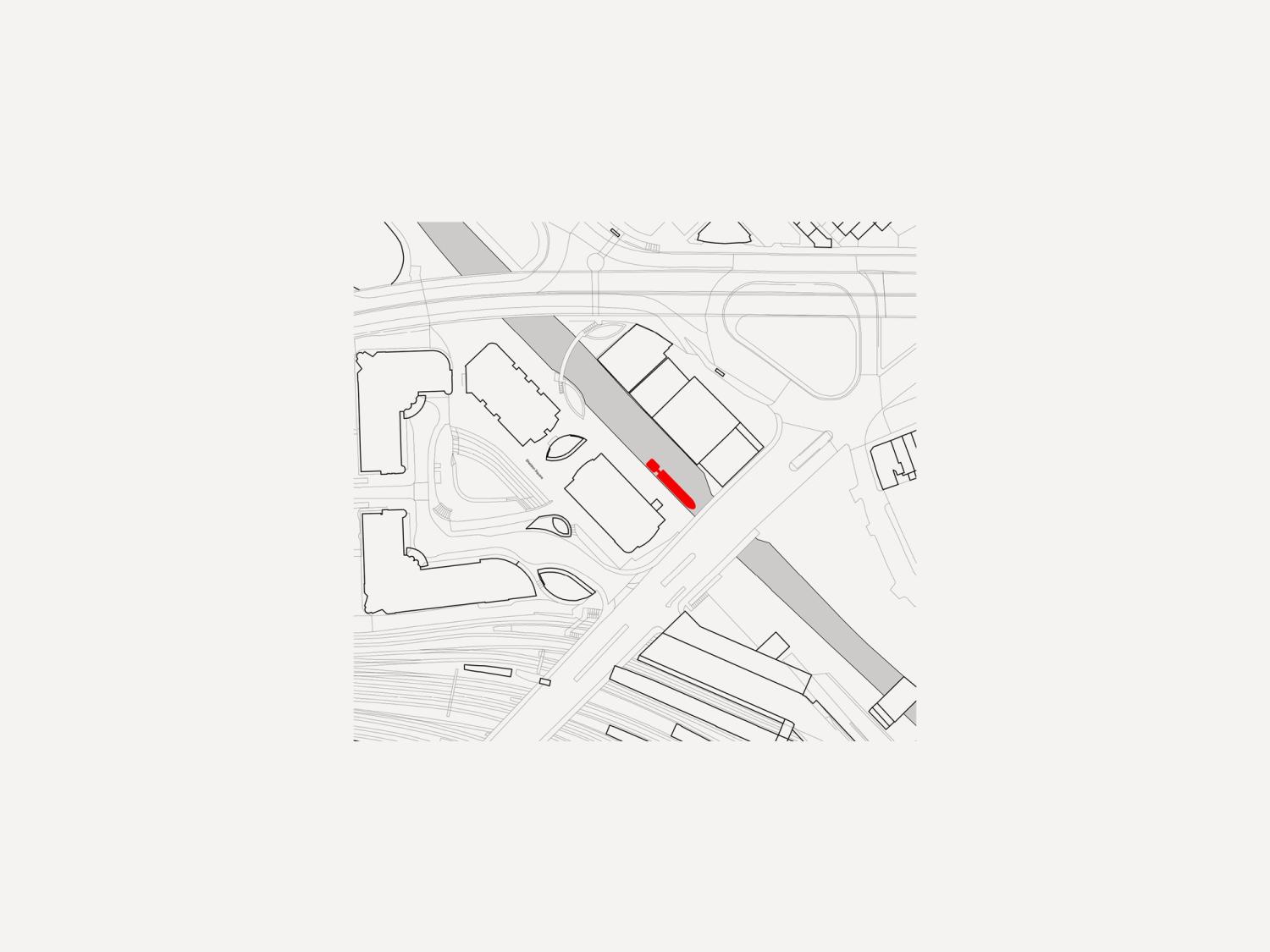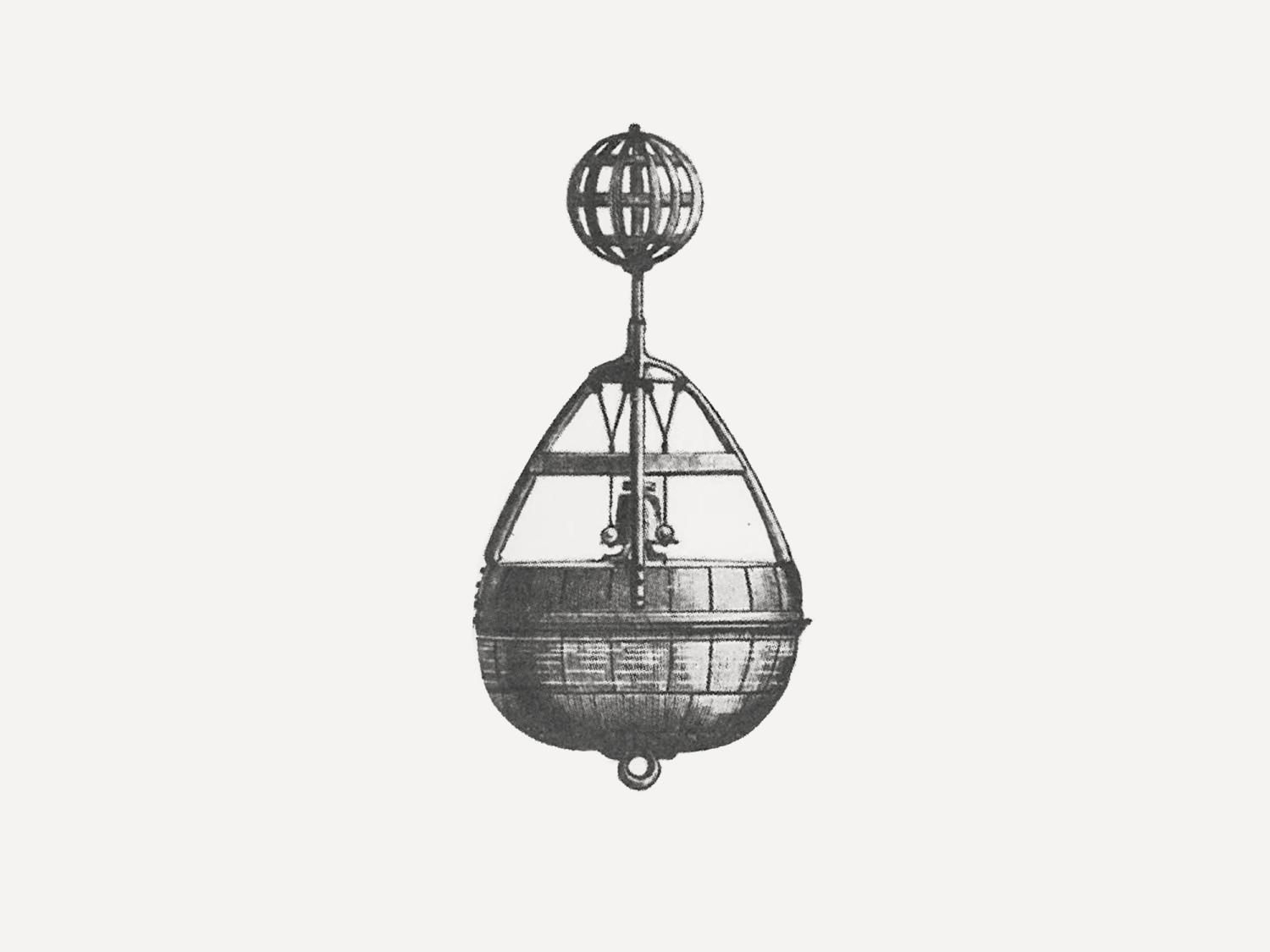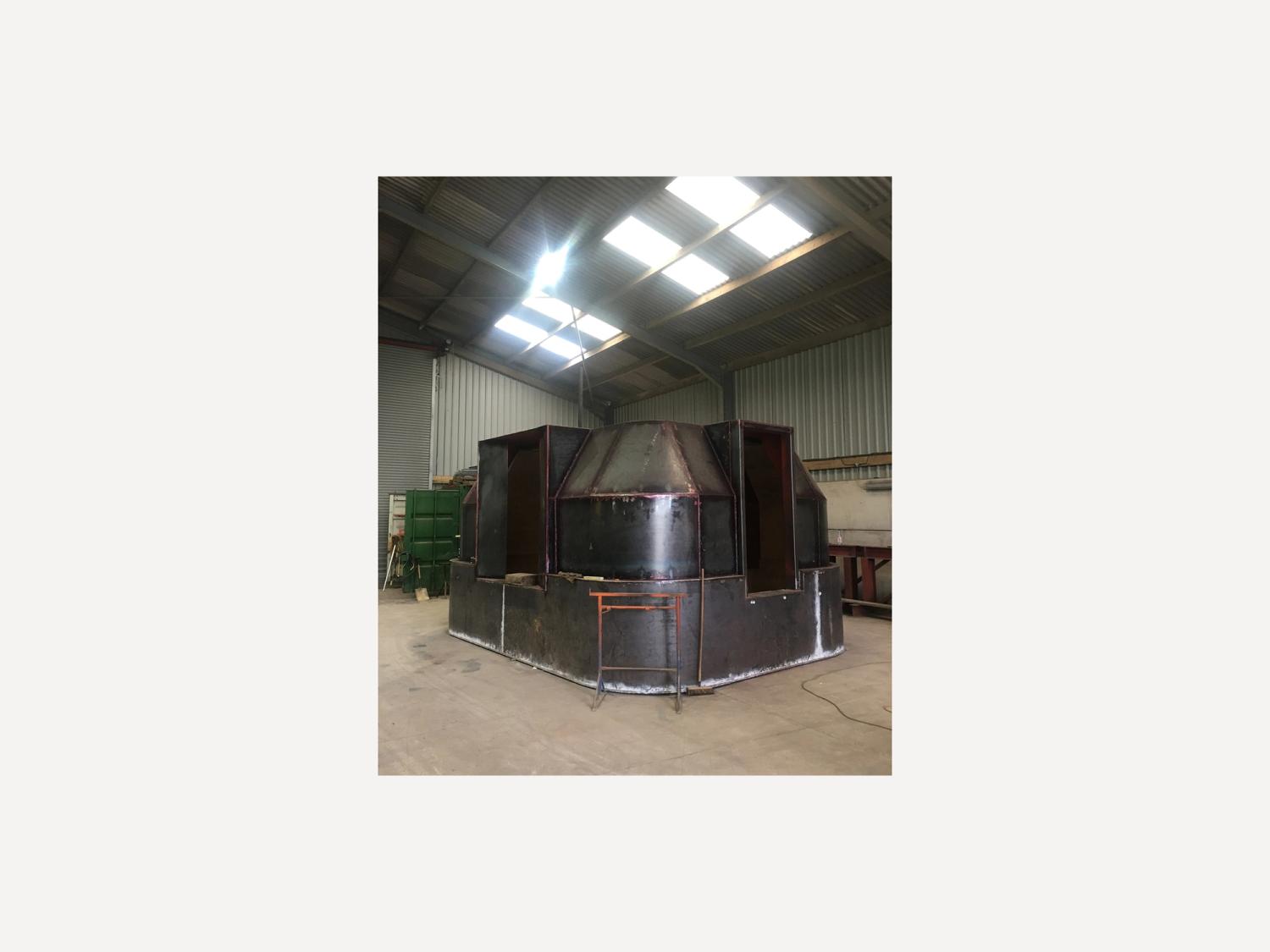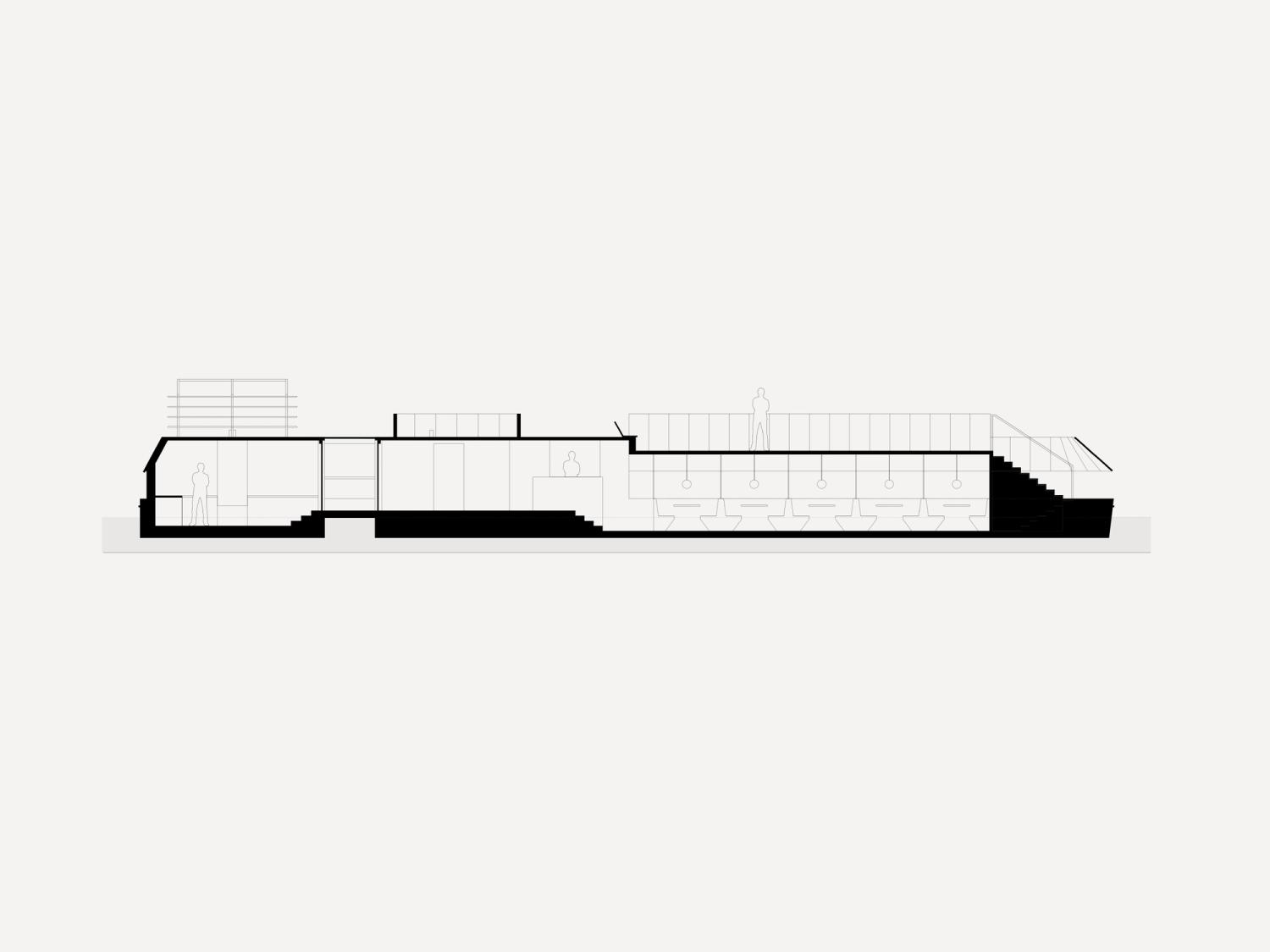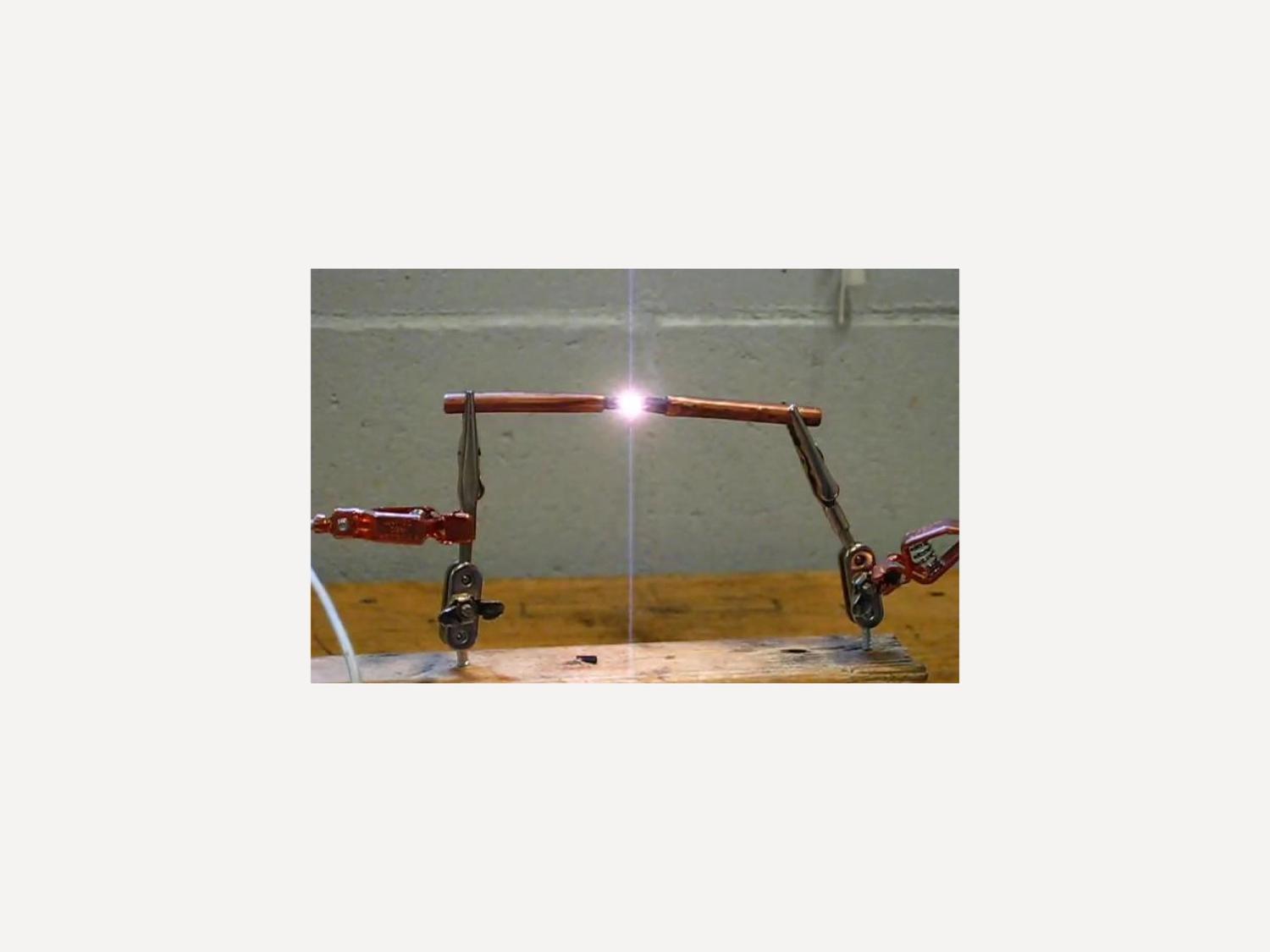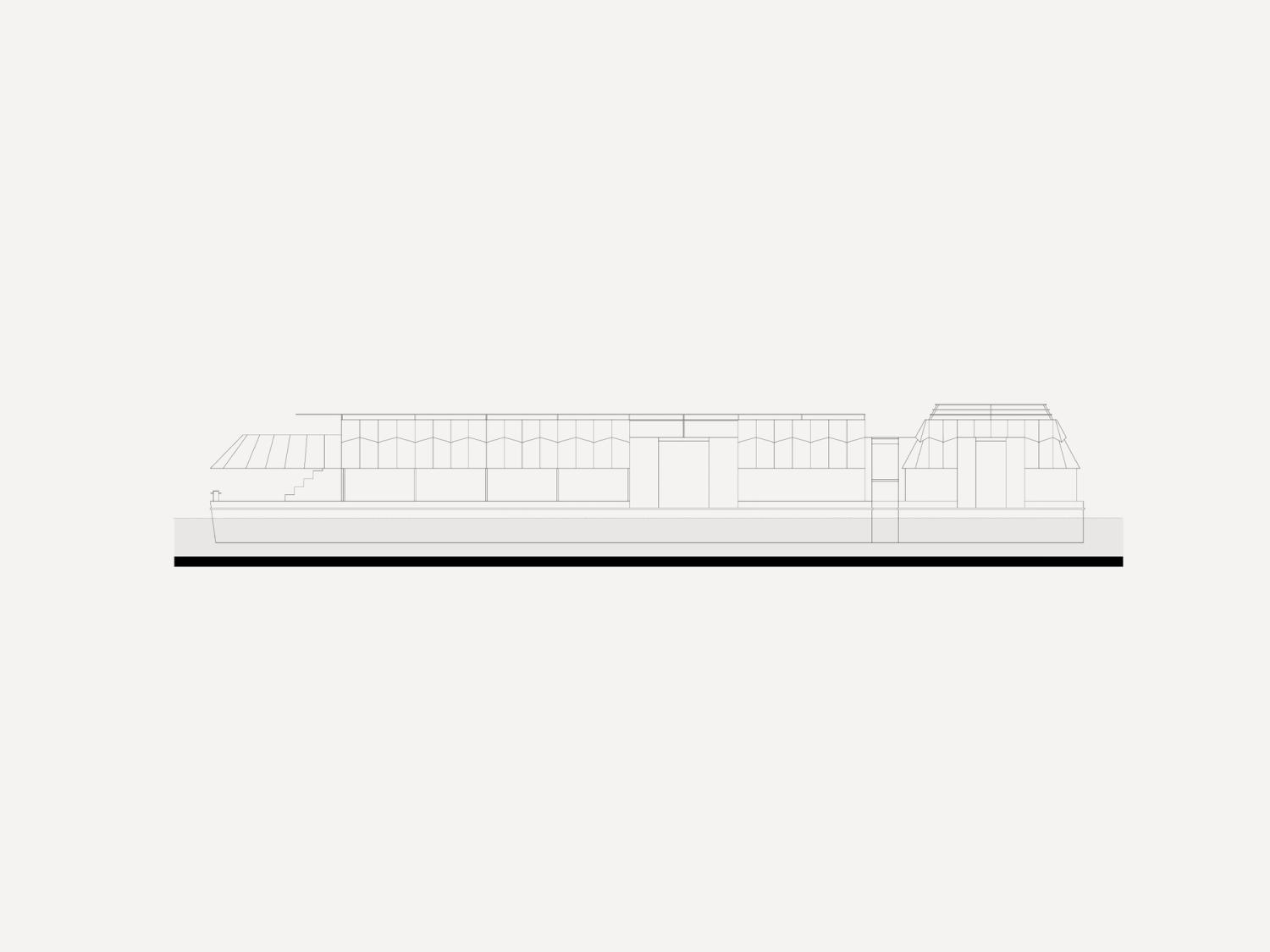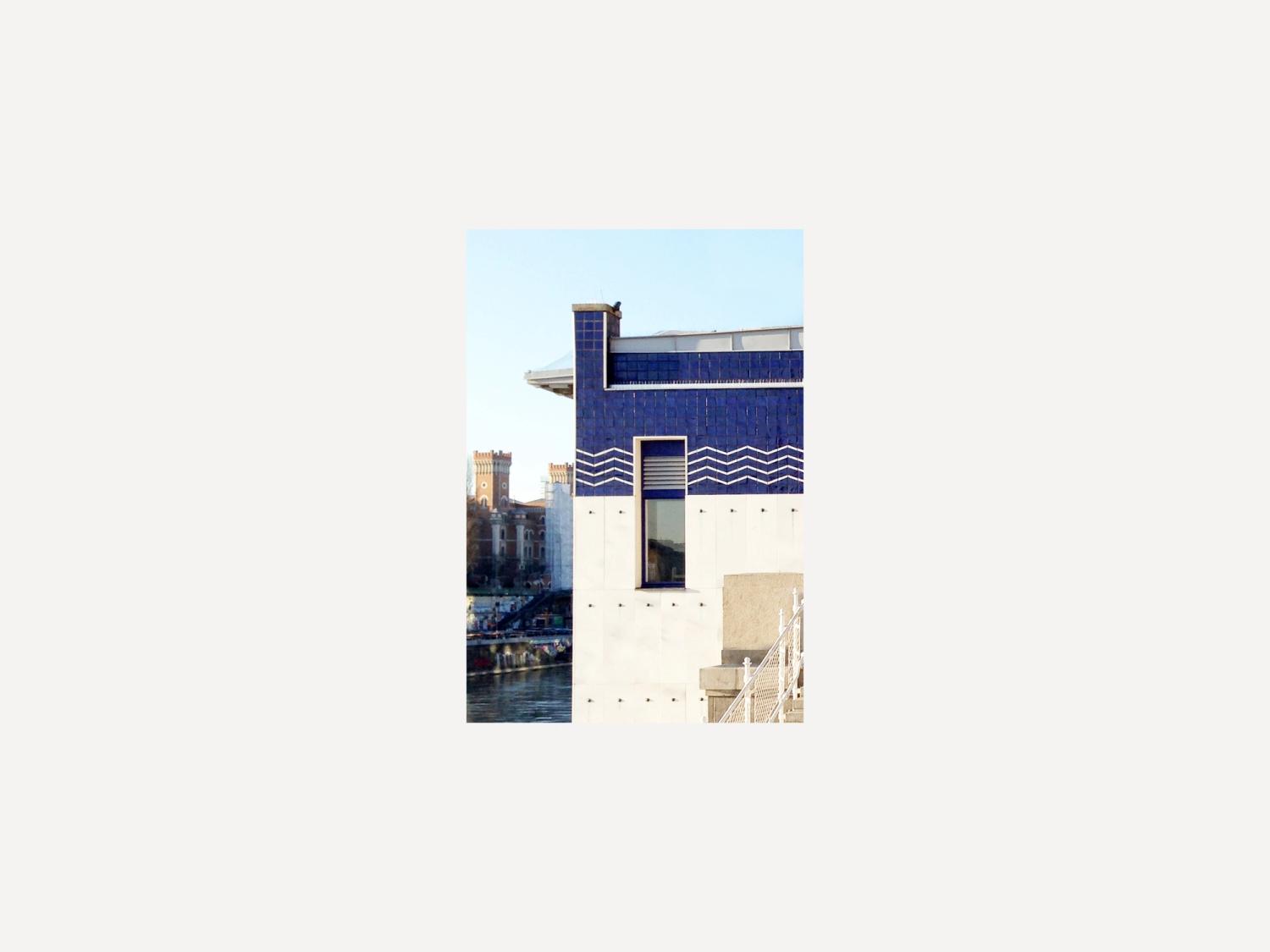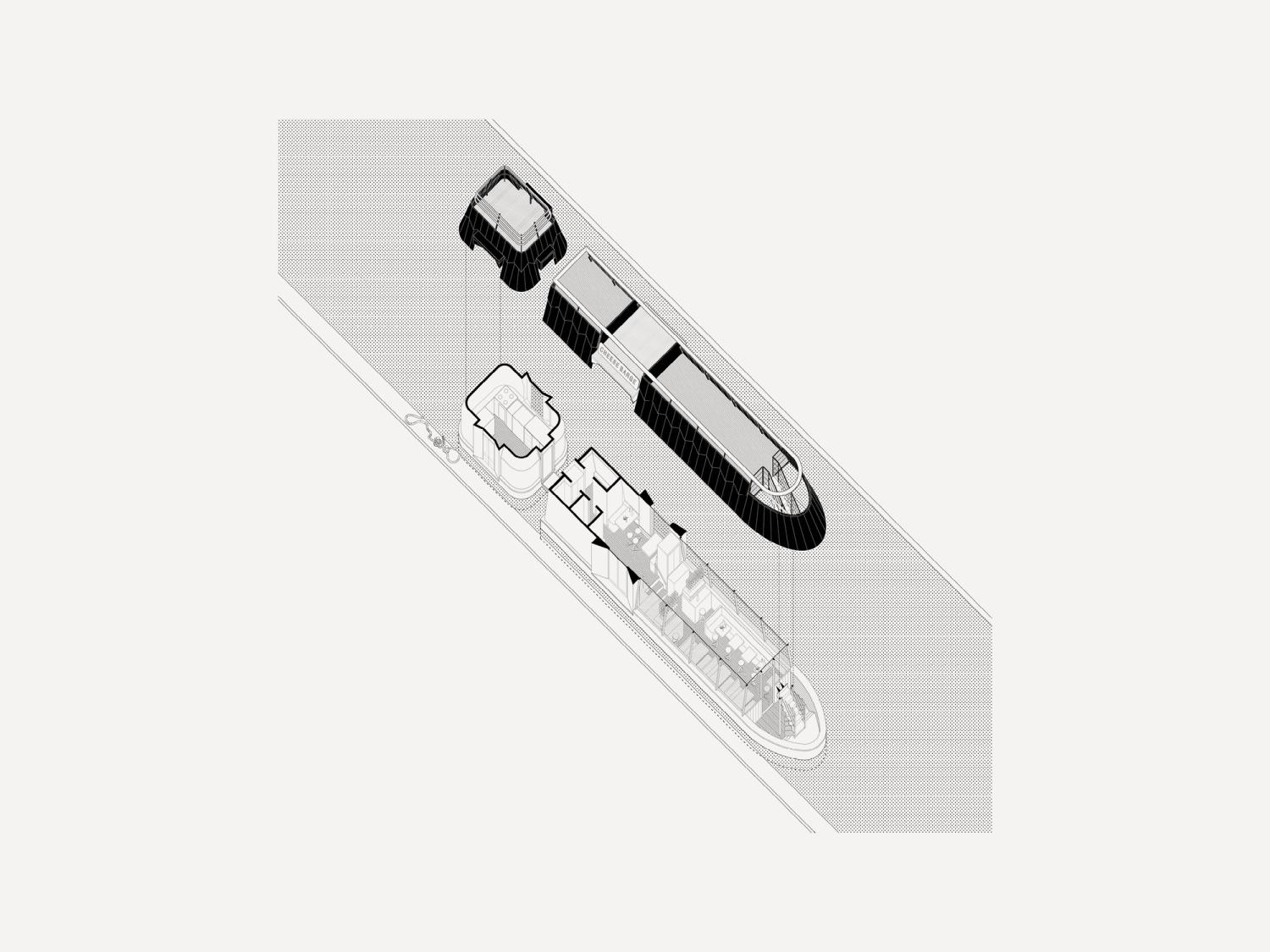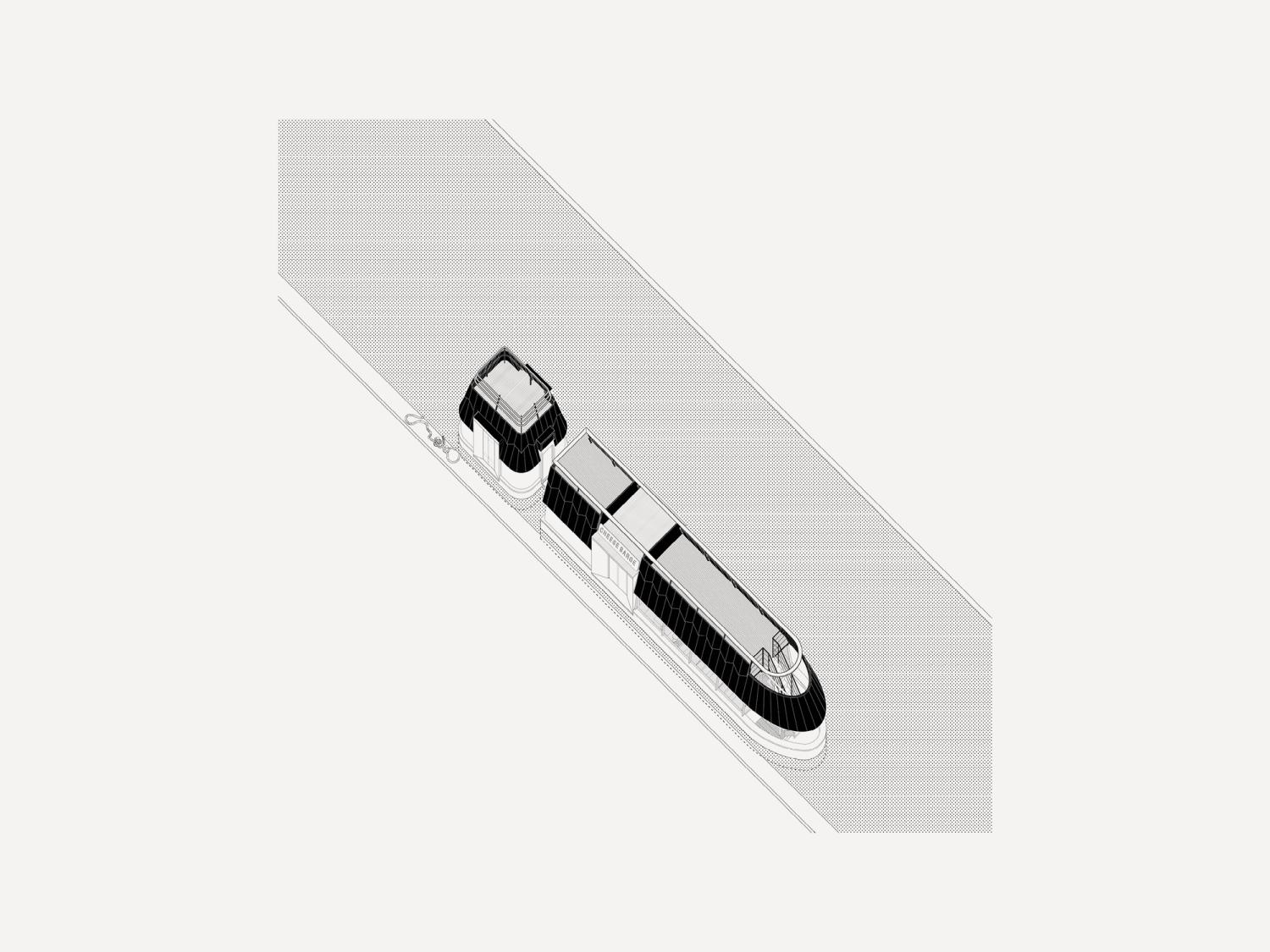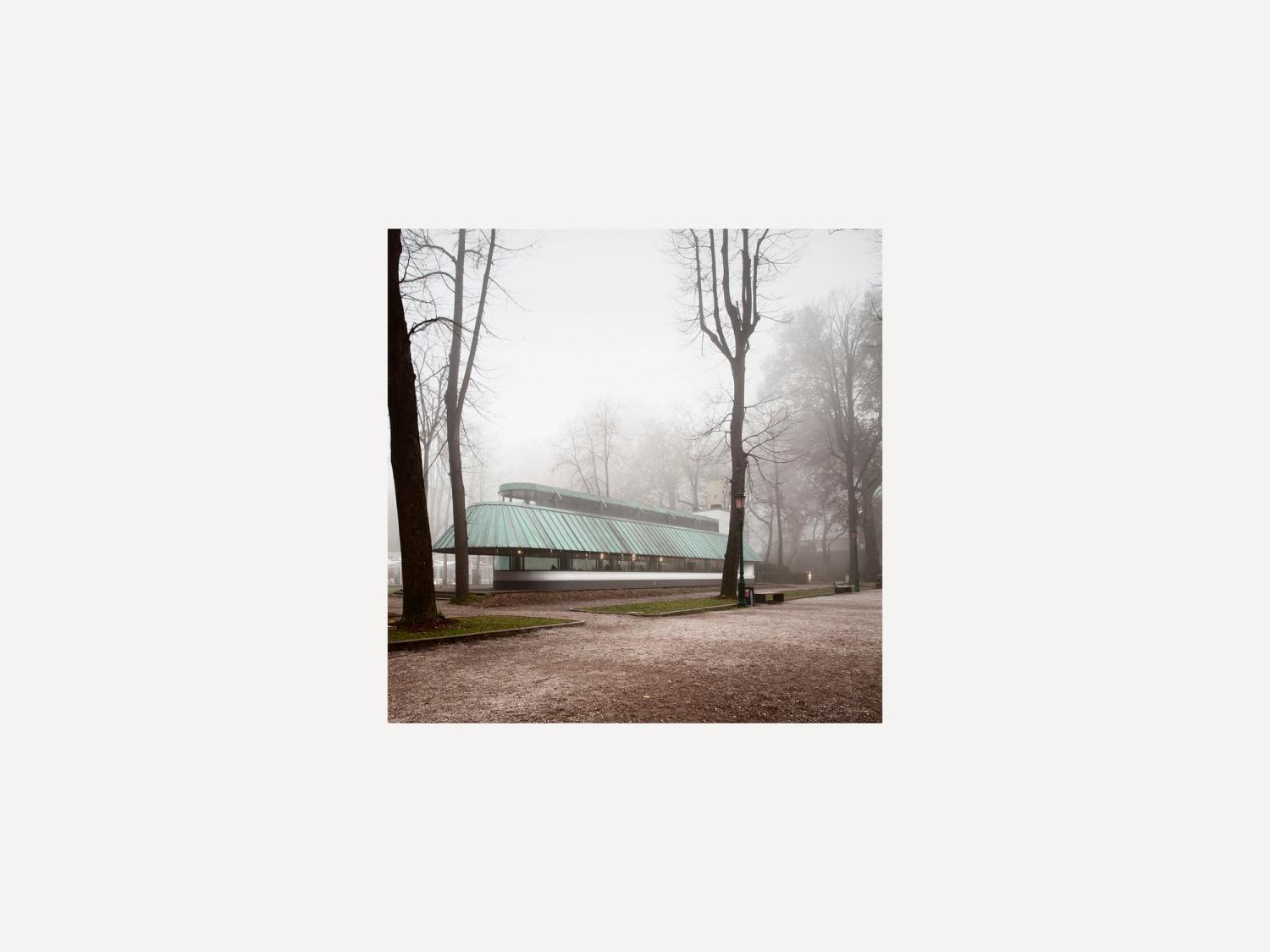Floating Restaurant
London, UK, 2021
British Land commissioned ARA to design a custom-built barge for a new London restaurant, The Cheese Barge. The floating restaurant creates a distinctive focal point and destination for Paddington Central and the wider area. The boat’s curving, sloping roof is clad externally in verdigris-coloured patinated metal. On the underside of this roof, a copper colour is visible from inside the boat, creating a warm and convivial interior as it gathers the light reflected off the surface of the water.
Adam Richards Architects’ design takes inspiration from James Stirling’s Electa bookshop pavilion in the Biennale gardens in Venice, which is itself inspired by nautical design. In researching the local area, the practice found further inspiration in a story from local history. Hertha Marks Ayrton, a pioneer female electrical engineer, lived in Paddington from 1903-23. She was the first woman to speak at the Royal Society, the first female recipient of the Royal Society’s prestigious Hughes Medal, and the author of The Electric Arc. Copper is commonly used in electrical experiments due to its high levels of conductivity, and the barge’s signature copper roof and interiors are inspired by Ayrton’s story.
The main barge draws on the forms of traditional British canal boats, its roof structure suggesting both the tarpaulin covers used on working canal barges, and the traditional inclined sides of canal boats. The smaller boat is inspired by traditional nautical buoys, used to warn ships of hazards using colour, flags or lights.
Photos: Brotherton-Lock

